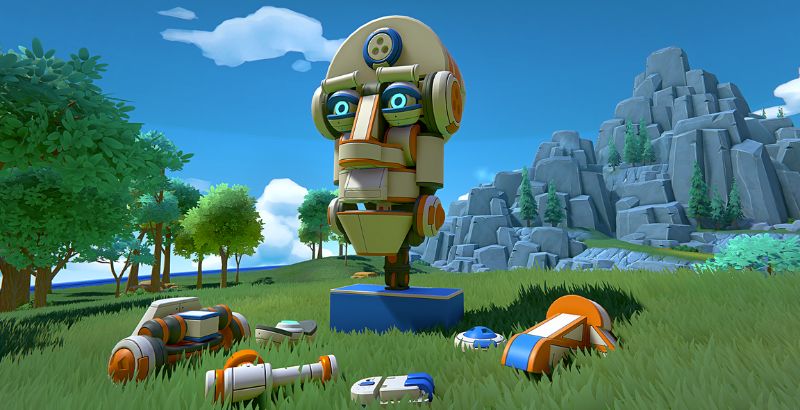
As someone with absolutely zero engineering background, the idea of Plasma made me excited and nervous. Plasma is a new creative engineering game created by Dry Licorice. Plasma asks players to use all sorts of combinations of physical parts as well as simplified versions of coding to create devices that can be as simple as a lightbulb or as creative as a Ferris wheel. Some examples are given for you, but the endless amount of combinations allows for complete player-driven creativity when seeing how different parts and different coding commands will interact with each other.
The game takes the complex engineering world and makes it approachable and entertaining for players of any age or background. Learning about the concepts of engineering in a fun, 3D-animated environment seemed fun, but my lack of knowledge also made it seem incredibly daunting. Thankfully, the intro level in Plasma gives players an incredibly helpful tutorial on some of the basic components of the game. After completing a few introductory engineering builds, players then get to travel to the Homebase to put their knowledge to the test through a few more introductory-level creations before they are set loose.
I love the way Plasma introduces players to all of the creative possibilities in the game by showcasing relatively simple builds like a flashlight or a drone. It even shows players how to register simplified code that will, for example, open a door when a button is pushed. Nothing is made to seem too challenging, and it was incredibly easy to understand the core mechanics of how these systems work. Those simple systems are then available for players to use when going off on their own to explore new worlds and create to their hearts’ content.
That creativity is what makes Plasma really stand out. Already there are a decent amount of Steam Workshop creations from users that truly blew me away. There are creative creatures like a crab or a duck with a shotgun, but there are also calculators, coffee machines, and more. Since the game hasn’t been released to the general public yet, the amount of community creations is inevitably going to be limited to begin with, but the variety shown in the early stages sets up for what I expect to be some truly epic devices created by players. If the “French Invention” I found is an example of what is coming down the pike, I expect to be equal parts impressed and bewildered.
But that’s what makes Plasma so appealing. The systems are there to create an endless amount of opportunities for players to keep them coming back for more. People who might not be too creative personally are still able to use and enjoy the complex mechanics made by others and don’t need to feel pressured to either create something incredible or stop playing. I was not expecting the engineering to feel so simple, however, and am excited to try my hand at making something complex too, even if I know it will inevitably be a disaster. That’s the magic of Plasma’s approach.
Plasma still has a ways to go in terms of core game content, but given that it is releasing in early access that will be coming down the road. For now, the main focus is on developing the systems that allow players to be creative and they have truly nailed that from the start. I can’t wait to see what wild creations the community comes up with.
Plasma launches in early access on Steam March 30th, 2023.






